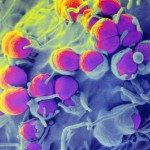Link to Pubmed [PMID] – 18295458
Schizophr. Res. 2008 Jul;102(1-3):295-302
Treatment adherence in early psychosis individuals is considered problematic. Some studies have tried to understand reasons for medication non-adherence in this population, though few have also considered engagement in services. We conducted a cross-sectional study with 118 early psychosis individuals, assessing multiple constructs (symptoms, insight, personality traits, alliance, childhood trauma, substance abuse, social functioning and sociodemographics) suggested in the literature as potentially linked to medication adherence or engagement in services. Forward Wald logistic regression suggested that more positive symptoms, having witnessed violence as a child and high agreeableness as a personality trait predicted poor medication adherence. Forward linear regression revealed that physical abuse as a child, lack of knowledge regarding consumer rights, difficulties in building an alliance, low neuroticism and high agreeableness predicted poor service engagement. Profiles of non-adherers or low service engagement were strongly linked to childhood trauma, and high agreeableness, as well as more severe symptoms and poor alliance. Males with histories of legal problems were also more prevalent in both groups. No significant differences were found for insight or substance abuse. Overall, individuals with early psychosis who adhered less to treatment in general could have issues with trusting authority and place more importance on peer acceptance. Results are presented in light of the existing literature and clinical implications are discussed.

